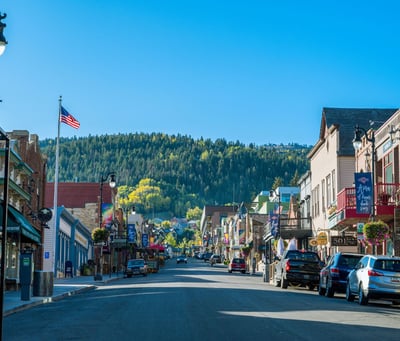The Art of Arrival: How to Land Softly in Any City


A gentle traveler’s guide to orientation, rhythm, and slow immersion in unfamiliar places.
Breathe Before You Begin
There is a stillness in every arrival—if we choose to notice it. Before the rush of check-in counters, SIM cards, and taxi fare negotiations, let there be a moment of breath. The soft pause after a plane door opens, the silence of luggage wheels on unfamiliar flooring—these are subtle invitations to arrive not only physically, but emotionally. Let your body catch up with your passport.
Modern travel often emphasizes speed—how fast we can reach a destination, how quickly we can start ticking off experiences. But there is power in pausing. In the airport’s quiet corners, in the cab’s first glide through unfamiliar streets, there is a chance to transition—not just geographically, but spiritually. Arrival is a threshold. Cross it slowly.


Choose Your First Three Hours Mindfully
Too many travelers rush into new cities like they’re running late to a dinner party. Resist the urge. Your first few hours set the tone. Choose them with intention: take a walk around the block, find a small café, watch the street life. Don’t try to conquer a city on day one—let it whisper its presence into your senses.
Often, these first three hours are when we form the emotional color of a place. Are you overwhelmed, disoriented, or quietly delighted? These impressions shape how you relate to the city for the rest of your stay. Create space for gentleness: stretch your limbs, let your eyes rest on architecture, let your thoughts wander with the sounds of passing lives. It’s not about doing—it’s about attuning.
Walk Without Purpose, But With Attention
There is no better orientation than a purposeless stroll. Not a tour, not a checklist—just movement with awareness. Observe window displays, overhear conversations, follow the scent of freshly baked bread. Let the city’s rhythm imprint itself on your body. You’re not just a visitor. You’re learning the pulse of place.
This is also the moment where unexpected magic happens. A courtyard you weren’t seeking. A bookstore with handwritten poetry in the window. A stray cat napping under a chair in a faded café. Cities reveal their soul not in landmarks, but in subtleties. To walk aimlessly with attention is to court serendipity.


Unpack Symbolically
Unpacking isn’t merely functional—it’s ritual. Lay your clothing with care, place a book on the nightstand, hang a scarf by the door. These small acts ground you. In a transient world, making a space feel momentarily yours is a quiet act of belonging.
Even if you're only staying two nights, perform this gesture with tenderness. The way you place your belongings is a conversation with space—a soft claim that says: "I am here, even if briefly." Bring one object from home—a photograph, a scent, a trinket—to root your spirit in the unfamiliar. Home is a feeling you can carry.
First Meal Matters
The first meal in a new city is more than nourishment—it’s initiation. Find a place that feels lived-in, not curated. Let your senses lead you to where the locals are, even if menus are unfamiliar. The textures, the seasoning, the tempo of service—these are clues to the city’s character. Let the food tell you where you’ve landed.
Food is also story. It speaks of history, migration, terrain. What spices dominate? What textures linger? Who serves you, and how? The table is your first classroom, the meal your first lesson. Don’t seek the perfect restaurant—seek the sincere one. The imperfect bowl in a tucked-away eatery may offer more truth than any polished tasting menu.


Anchor Points and Micro Maps
Cities are overwhelming because they’re vast. But orientation becomes easier when you anchor yourself with micro maps. Find three places near your lodging—a bakery, a corner bookstore, a particular doorway with ivy. These landmarks help form your own internal map, making the city feel less like a maze, more like a growing familiarity.
You don’t need GPS for everything. Emotional cartography matters just as much. Where did you feel comfort? Where did something intrigue you? Mark those invisible coordinates. These become personal constellations that guide your movements and your memories. They make a place yours in quiet, intuitive ways.
Write a Note to the City
Before the day ends, write. One paragraph, even one sentence—something personal to the city. It could be gratitude, a question, an observation. These notes, over time, form a quiet dialogue between you and the world. You’ll look back and see that your arrival was not only a crossing of borders—but an opening of self.
Try to make this a ritual wherever you go. A slip of paper tucked inside a book, a journal entry, a voice note whispered into your phone. The act of documenting presence transforms fleeting impressions into something eternal. Cities remember us not through monuments, but through the way we listened to them.
✉️ Contact:
Curated by TrueTrip Hub |
© 2025 Invisible Atlas — All rights reserved.
Invisible Atlas
Journey Beyond the Visible
invisible.atlas@truetriphub.com
